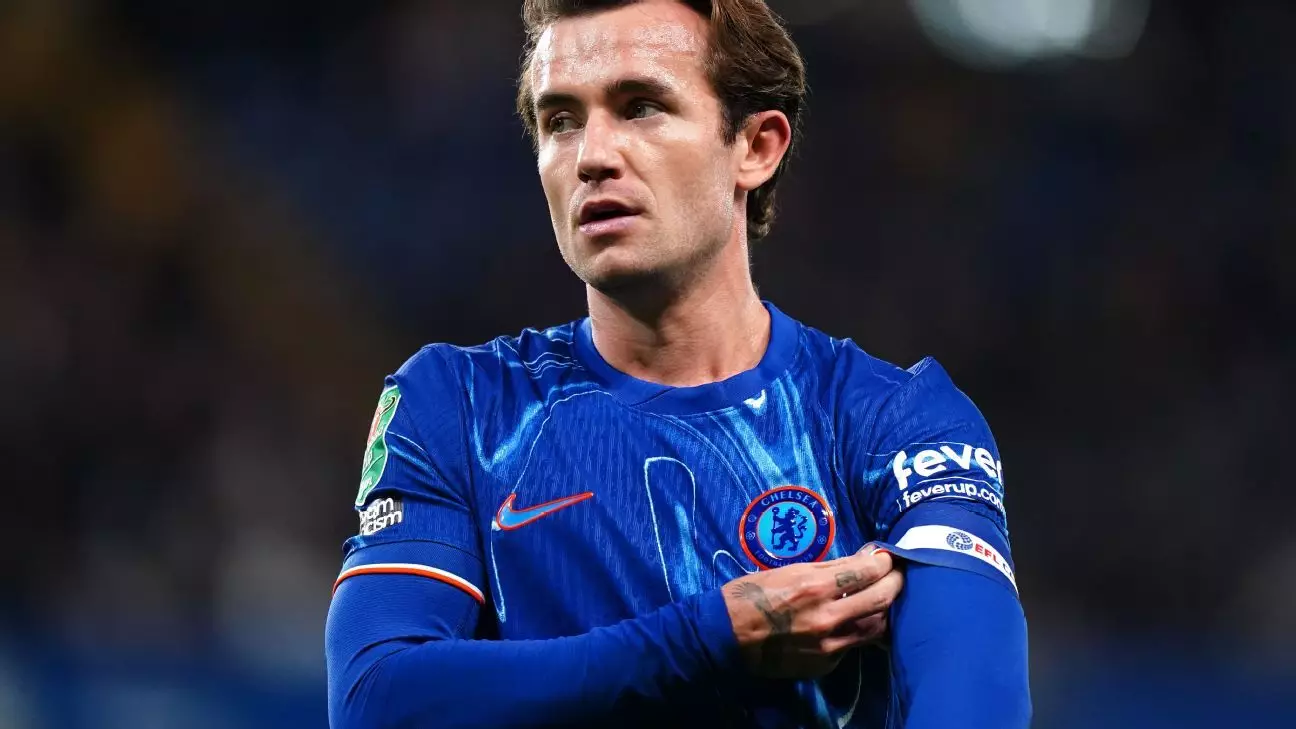Enzo Maresca’s tenure at Chelsea has sparked significant discussion regarding squad management and player roles, particularly in the case of Ben Chilwell. The 28-year-old left-back, once a regular starter with 70 appearances in the Premier League over four seasons, has found game time scarce since Maresca’s arrival as head coach last summer. With only a solitary appearance in the Carabao Cup this season, it’s evident that Chilwell’s position within Chelsea’s plans has come under scrutiny, provoking a complex emotional response from both player and coach.
Maresca has expressed feelings of “shame” regarding the limited opportunities afforded to Chilwell. His acknowledgment highlights a deeper issue within the club regarding the treatment of players who have previously contributed significantly. The Italian coach emphasized that while he respects Chilwell’s professionalism and dedication, he has made a strategic choice to explore different tactical options, leaving the seasoned defender on the sidelines.
The heart of Maresca’s decision-making process appears to lie in his tactical preferences. He articulated a clear preference for versatility over traditional roles, mentioning Malo Gusto and Reece James as players who offer different dimensions to the game. Chilwell, despite being a top-tier full-back known for his stamina and ability to contribute both defensively and offensively, is seemingly less favored due to the coach’s vision of full-backs who can adapt to multiple in-game scenarios. This narrow vision could potentially overlook the sustained excellence that players like Chilwell can bring to the team.
By rejecting the idea of full-backs operating solely as two-way players, Maresca is carving a niche that could redefine how Chelsea approaches the game. However, it raises a valid question: are tactical innovations worth the potential alienation of established players like Chilwell? The coach’s admissions, while respectful towards the player’s skill set, reflect a disconnect between tactical evolution and individual recognition.
The conversation surrounding Chilwell is not isolated, as it parallels the situation of young defender Renato Veiga. Maresca’s comments regarding the Portuguese international suggest a general unease within the squad, especially with contributions from newer recruits being favored over those with proven pedigree. Veiga, having transitioned from FC Basel, is under scrutiny for his adaptability, with speculations of his potential move to Borussia Dortmund creating an environment of uncertainty.
With Chelsea struggling for form—evident in their winless run in the Premier League—bold decisions and player management are critical for team morale. The upcoming match against Bournemouth could serve as a pivotal moment for Maresca to reassess his squad dynamics and perhaps reconsider the roles of experienced players like Chilwell. Talent alone is not enough; the sustainability of performance hinges on maintaining team cohesion and morale under evolving managerial directives.
While tactical innovations are essential in the modern game, the potential sidelining of talented players could backfire and hinder team synergy. Balancing strategy with player value will be crucial for Maresca as he navigates the complexities of Chelsea’s ambitions.

